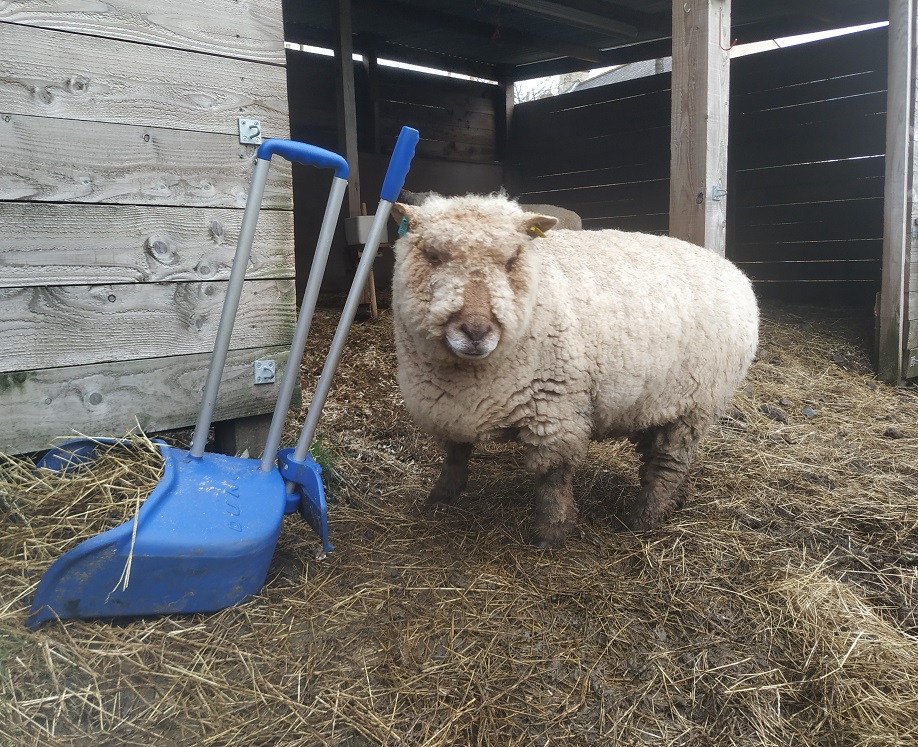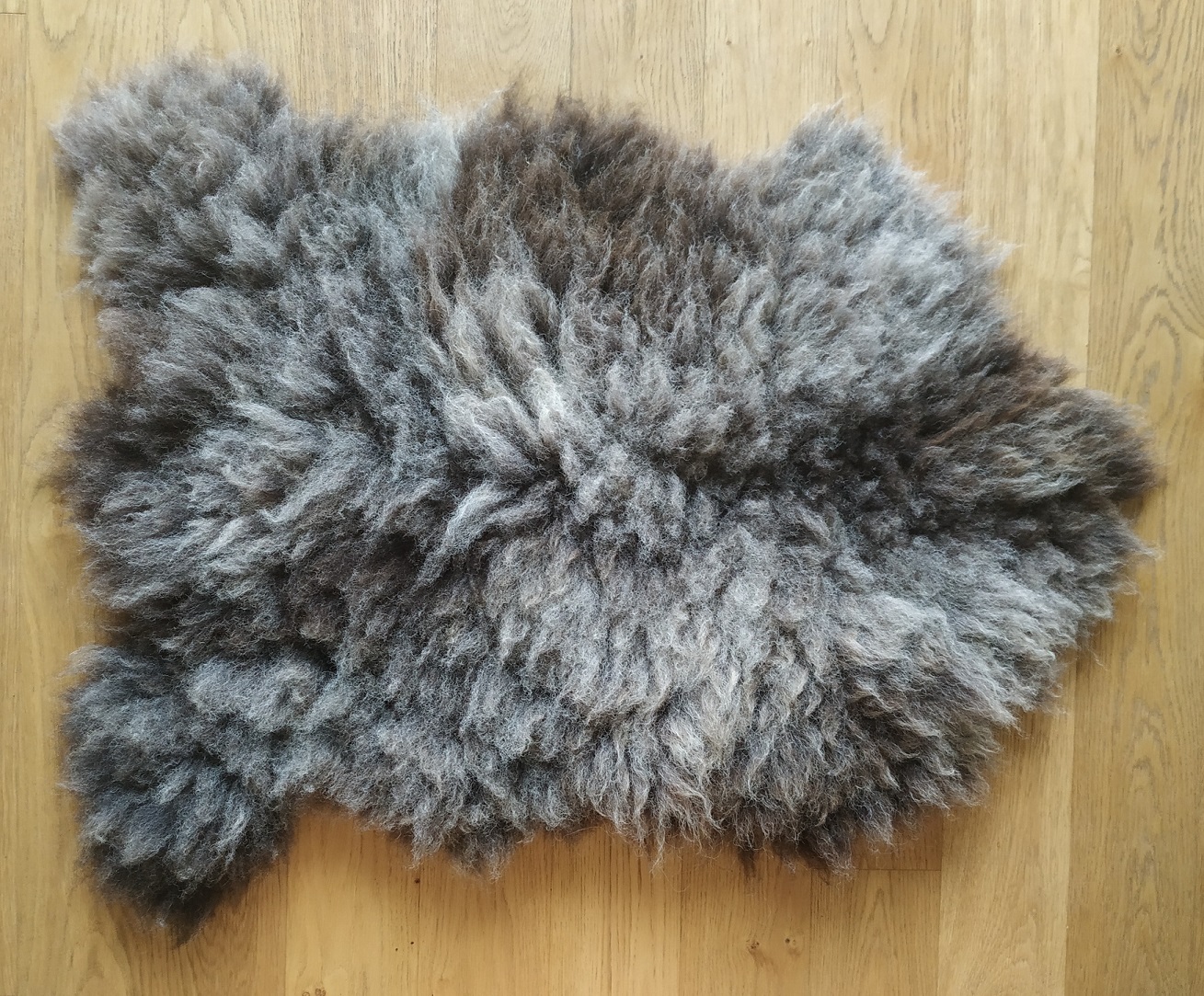
There’s a job we should probably do every year but it usually ends up being every two years or even every three or dare I admit it, every four. This is because it’s not the most exciting of jobs and nor is it necessarily an urgent job. It’s one of those jobs that you can happily turn a blind eye to and walk on by. In fact, I like to remind myself that putting off this particular task can make things easier when we eventually get round to doing it.

So what am I talking about? Yes my friends, it involves sheep dung, and it involves large quantities of it. I’m talking about deep cleaning the sheep shed.

During the winter months our happy teddy bears spend a lot of time hanging around their shed. They have a big shed, conveniently positioned next to the hay feeders. It’s like a living room, kitchen arrangement for our woolly friends. Although the sheep have access to the wider pastures on the hills, during the winter months when they’re on hay they trundle down to the orchard every evening, munch their hay, sprinkle it all about while doing so and then spend the night in the shed enjoying a cosy time out of the elements. The sheep are very happy with this arrangement, they live a practically stress-free existence and the shed is a big part of this.

This is all very well, but the downside of the shed arrangement is that it can get really messy. Sheep go to the toilet wherever they happen to be. They are not like pigs who would never dream of going to the loo in their shed. Sheep do their business wherever they happen to be.

Every afternoon I go along with my fabulous “Dungbeetle” sh*t shoveller which I got for my birthday recently. This is a great piece of kit, it takes an impressive amount of dung and I can get the orchard and shed cleaned up in next to no time time compared to my old “shoveller”. Plus I don’t get the back and arm ache which is a bonus!
But despite my efforts shovelling dung into the trailer each day, a small amount manages to somehow build up, secretly and stealthily like a woodland fungus, so slowly that it goes almost undetected. Until one day you walk into the shed and wonder why you’re scraping your head on the ceiling.

This phenomenon is probably common to farmers and smallholders and there might be a name for it out there somewhere. Despite shovelling copious amounts of dung and bedding each day and keeping the shed clean and tidy, a huge amount still manages to mysteriously build up behind your back. The fact of the matter is, I know I said earlier that this is a job that can be happily put off, when it gets to the point where you’re scraping your head on the ceiling, you know it’s time to roll up your sleeves!
As the shed is pretty sizeable, I break down the deep-clean by doing a small area at a time. Every day I take my special tool, (I’m not sure what it’s officially called but it’s perfect for prising up compacted slabs of ancient manure). Once the prongs go down, I can leaver up satisfyingly large chunks and fling them onto the muck heap. Once I’ve finished I’ll shovel the manure into a trailer and quad it over to the vegetable patch to use a a mulch.
I’ve been working on this every day for the last two months. It’s tiring, but hugely satisfying and there’s a real sense of “before and after”. Also, sometimes I find things like lambing tail rings, or ancient bits of bailer twine hiding away in the “dung cake” which is weirdly nostalgic. I mentioned earlier that this job is easier if you leave it for as long as possible. The reason for this is because the thicker the wodges, the easier they are to prise away. If the slabs are too thin, they crumble into nothing which is very disappointing.


I have only a little way to go now, I’m hoping to have the deep-clean completed by next week. Then I can pretend not to notice the slow stealth as it creeps back over the next three years!





